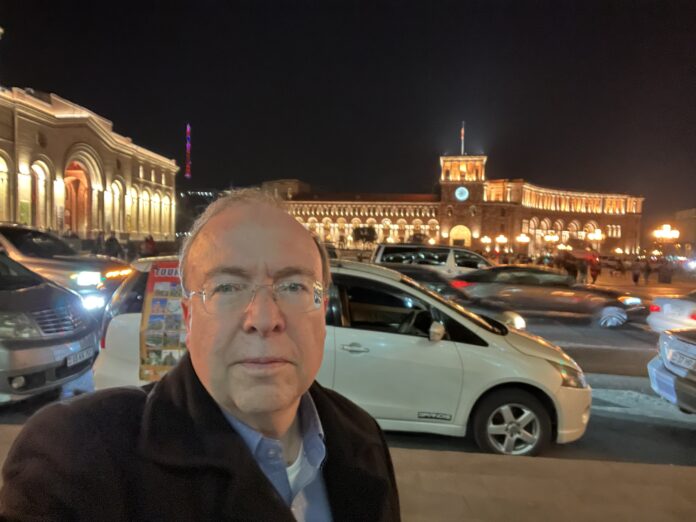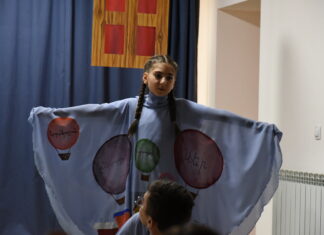YEREVAN (Azg) — The Future Armenian Convention assembled around 200 participants under the same roof for three days, from March 10 to 12, of which 100 were from different communities of the Armenian diaspora and represented different social and professional spheres. The majority of Armenians chosen from Artsakh to participate were prevented due to the blockade of the Berdzor (Lachin) corridor.
The Future Armenian intends to bring together the potential of the Armenians for the sake of future progress of the Armenian people. Historian Aram Arkun, who is the executive director of the Tekeyan Cultural Association of the United States and Canada (with headquarters in Watertown, Mass.) and managing editor of the Armenian Mirror-Spectator, came to Yerevan from the United States in order to participate in the convention.
What follows is an edited version in English of the original Armenian language interview.
Perspectives on Armenia and the Future Armenian
The last time I came to Armenia was before Covid and the 2020 war. I have visited many times, starting from childhood with my family in the Soviet era. I was born in the United States, as was my mother, but I have always felt a special connection with Armenia and a desire to help and support it.
It was very interesting for me to meet participants from far-flung places like Kazakhstan, Ukraine, Turkey, and many European countries, as well as from various Armenian provinces, within the framework of the Future Armenian convention, and to hear their views on creating a prosperous and positive future for Armenia. Apart from the issues of historical responsibility, including Armenian Genocide recognition, and the preservation of Armenian identity and culture, the strengthening of Armenia-diaspora ties, and demographic issues were discussed. The birth rate in Armenia has declined to below replacement rate. What should be done, for example, to avoid the deleterious consequences? Three days of discussions took place on the aforementioned topics, debating and finally voting on what measures should be put forward and what ideas should be introduced in order to solve these problems that threaten the future of Armenians.








